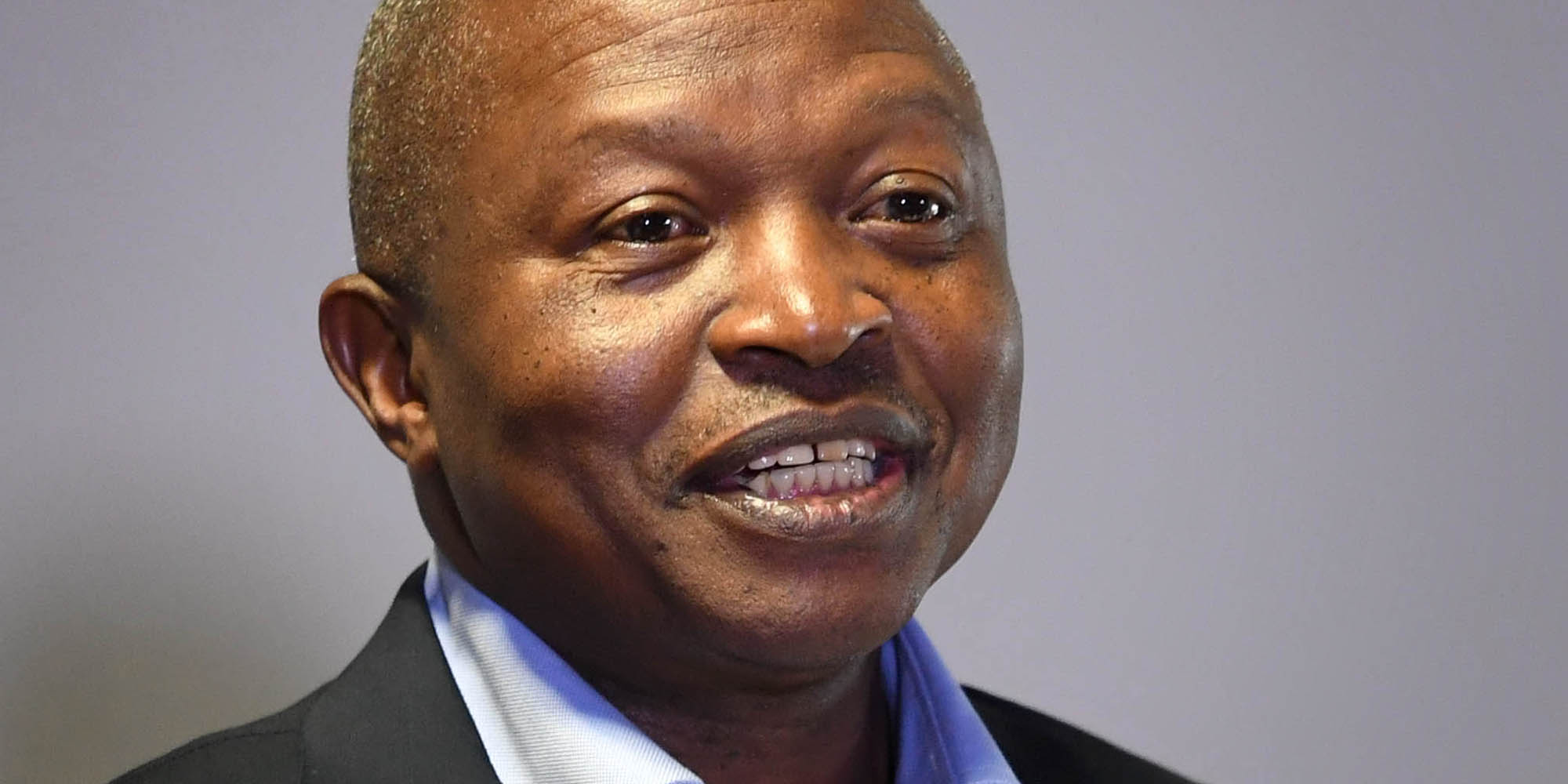After a prolonged absence to seek medical treatment in Russia, Deputy President David Mabuza made his first public appearance on Wednesday when he delivered a virtual address at the fourth Human Resource Development Council (HRDC) summit, calling for the inclusion of youth and women in the country’s economic recovery efforts.
In June it was announced that Mabuza had requested “a few days” of medical leave from President Cyril Ramaphosa to undertake a visit to Russia for a “scheduled medical consultation”. The consultation was a “follow-up” to previous medical consultations that Mabuza had received in Russia.
After spending more than a month abroad, Mabuza arrived back in South Africa on Wednesday amid mounting public concern over his prolonged absence from his duties.
Mabuza, in his capacity as chairperson of the HRDC, attended the hybrid summit on Wednesday morning, alongside the deputy chairperson of the HRDC Bheki Ntshalintshali, and the Minister of Higher Education, Science and Innovation Dr Blade Nzimande.
Addressing the HRDC, Mabuza reiterated that the event was taking place two days after the commemoration of Women’s Day, “which is a reminder of what still needs to be done towards the full emancipation of women”.
He said: “In pursuance of their aspirations we should consider how this summit advances the struggle against poverty, inequality, patriarchy, prejudice and exclusion of women, people with disabilities and key populations from accessing skills and broader development opportunities across all facets of life.”
The aim of the three-day summit, held under the theme “Skills required for the 21st century”, was to “ensure that no one is left behind as we implement measures to rebuild and grow our economy”, said Mabuza.
He said the summit was taking place “under unprecedented conditions presented by the devastating effects of the Covid-19 pandemic that has disrupted many aspects of life, including health, our economy and livelihoods”.
Recent results from the Quarterly Labour Force Survey revealed that, in the first quarter of 2021, structural unemployment stood at 32.6%, said Mabuza. “This figure is worse amongst young people” where it stands at 46.3%, and 9.3% among university graduates, he said.
These statistics reflected stifled and deferred “dreams, hopes and opportunities”.
Mabuza said it was necessary to address the issue of school and university dropouts, and failure to do this “adds more numbers to the cohort of young people that are not employed”.
While education remained a fundamental part of rectifying unemployment, access to healthcare, basic services and public transport were “equally important”.
The recent riots in KwaZulu-Natal and Gauteng were a reminder that economic recovery efforts should be “anchored” in ensuring the security of persons, property and essential services and businesses, said Mabuza. DM





 Deputy President David Mabuza. (Photo: Gallo Images / Netwerk 24/ Deaan Vivier)
Deputy President David Mabuza. (Photo: Gallo Images / Netwerk 24/ Deaan Vivier)